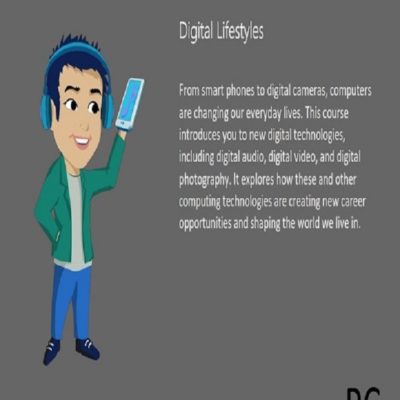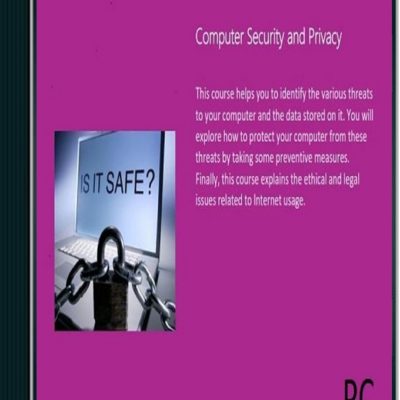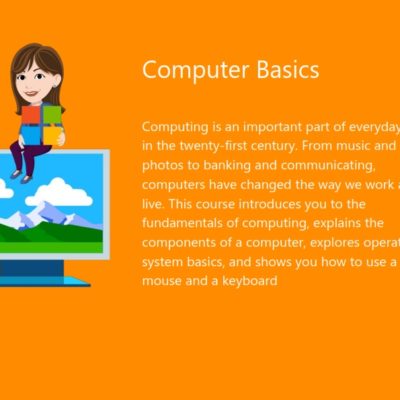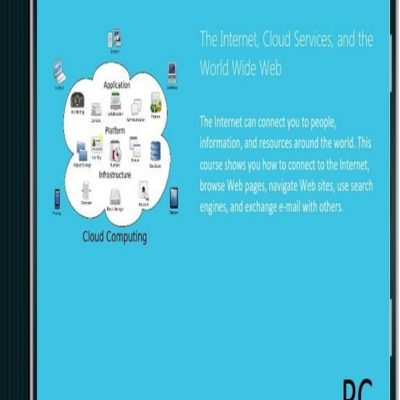Description
Whether you are new to computing or have some experience, Digital Literacy will help you develop a fundamental understanding of computers. The courses help you learn the essential skills to begin computing with confidence, be more productive at home and at work, stay safe online, use technology to complement your lifestyle, and consider careers where you can put your skills to work. This Digital Literacy eLearning course applies to all ages (both students and adults).
Productivity Programs
Hundreds of software applications are available today. This course explores the most common productivity software applications used in school, at work, and at home. The course teaches you how to choose the right software for your project. You will learn the fundamentals of word processing, spreadsheets, presentation software, and databases.
Productivity Programs
Lesson 1: Introduction to Productivity Programs
Objectives
1.1 Describe the functionality of the common programs in Microsoft Office 2013 and Office Web Apps.
Lesson 2: Common Features and Commands
Objectives
2.1 Identify the main components of the graphical user interface (GUI) of a productivity program.
2.2 Use the pointer to navigate in a program.
2.3 Identify the tabs, groups, and commands on the Ribbon.
2.4 Use the buttons on the toolbars to perform various tasks.
2.5 Type text and characters in a program by using the keyboard.
2.6 Explain the use of keyboard shortcuts and key combinations.
Lesson 3: Introduction to Word Processors
Objectives
3.1 Perform basic tasks in a word processor.
3.2 Find and open templates.
3.3 Edit and format text.
3.4 Work with tables and pictures.
3.5 Proofread a document.
3.6 Identify the benefits of desktop publishing.
Lesson 4: Introduction to Spreadsheet Programs
Objectives
4.1 Identify the components of a spreadsheet.
4.2 Enter data into a spreadsheet.
4.3 Perform basic mathematical tasks in a spreadsheet.
4.4 Insert charts in a spreadsheet.
4.5 Print a spreadsheet.
Lesson 5: Introduction to Presentation Programs
Objectives
5.1 Identify the elements of a presentation program.
5.2 Create a presentation.
5.3 Add graphics and multimedia to a presentation.
5.4 Use the print options available in a presentation program.
Lesson 6: Introduction to Database Programs
Objectives
6.1 Explain basic concepts of a database.
6.2 Create a database.
6.3 Work with records in a database.
6.4 Explain what database queries are and how they work.
6.5 Work with reports.






Reviews
There are no reviews yet.